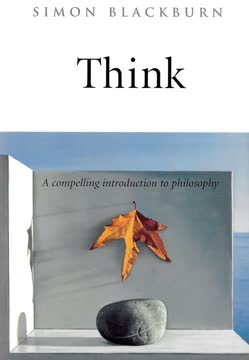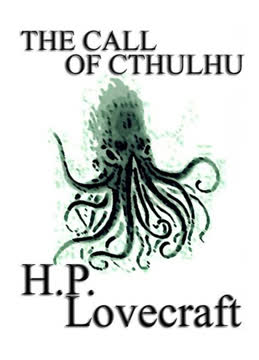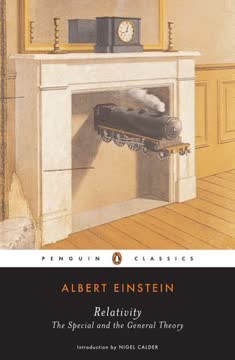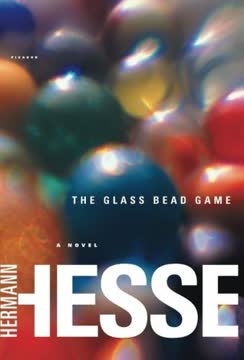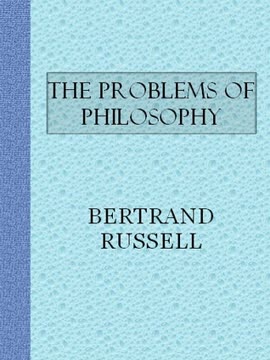Key Takeaways
1. Truth is telling it like it is, and falsity is not.
To say of what is that it is not, or of what is not that it is, is false, while to say of what is that it is, or of what is not that it is not, is true.
Aristotle's definition. Roxana introduces Aristotle's fundamental principle of truth: stating what exists as existing, and what doesn't exist as not existing, constitutes truth. Conversely, stating what exists as not existing, or what doesn't exist as existing, is falsity. This seemingly simple definition forms the bedrock of logical reasoning.
Practical application. The characters grapple with applying this definition to complex situations. For example, if Samarkand is indeed in Uzbekistan, then the statement "Samarkand is in Uzbekistan" is true. If it is not, then the statement is false. This straightforward application highlights the direct correspondence between reality and truthful statements.
Foundation of logic. This principle is not merely a philosophical abstraction but a practical tool for evaluating claims. It provides a clear standard against which to measure the accuracy of statements, forming the basis for logical arguments and rational discourse.
2. Value judgments arise from preferring truth over falsity.
Only fools prefer being wrong to being right.
Underlying preference. Zac argues against using "true" and "false" due to their association with value judgments. Roxana counters that the preference for truth over falsity is the root of these judgments. Even without using the words "true" and "false," asserting a belief implies that it is better to hold that belief than its opposite.
Inevitability of value. The characters explore whether it's possible to avoid value judgments altogether. Roxana argues that even without explicitly labeling beliefs as "true" or "false," the act of asserting a belief implies a preference for that belief over its negation. This preference introduces a value judgment, suggesting that holding the belief is somehow better or more desirable.
Implications for discourse. This understanding highlights the inherent value-laden nature of communication. Every assertion carries an implicit claim of superiority, making it difficult to engage in truly neutral or objective discussions. Recognizing this can help participants be more aware of their biases and assumptions.
3. Certainty is not a prerequisite for truth.
Since the number is either odd or even, it is either true that the number is odd or true that it is even.
Truth vs. certainty. Zac argues that truth implies certainty, but Roxana refutes this by pointing out that something can be true even if we don't know it for certain. For example, the number of coins on the train is either odd or even, but without counting them, we can't be certain which is true.
Probabilistic knowledge. Sarah introduces the idea of probabilities, suggesting that science often deals with probabilities rather than absolute certainties. While we may not be certain that witchcraft doesn't work, the evidence makes it highly improbable. This allows for a more nuanced understanding of truth, acknowledging the possibility of error.
Practical implications. This distinction is crucial for navigating the world, as we often act on beliefs that are probable but not certain. Recognizing that truth doesn't require certainty allows us to make informed decisions based on the best available evidence, even when absolute proof is lacking.
4. Fallibilism acknowledges the possibility of error.
Science is all about learning from one’s mistakes.
Human fallibility. Sarah embraces fallibilism, the idea that humans are fallible and can be wrong about anything. This leads her to question whether she can ever assert anything outright, as there's always a possibility of error. However, Roxana points out that this undermines any assertion she makes.
Balancing knowledge and doubt. The characters grapple with how to balance the need for knowledge with the recognition of human fallibility. Sarah initially suggests adding "I may be wrong" to every statement, but Roxana argues that this is impractical and undermines the purpose of making assertions.
Practical application. The characters explore the implications of fallibilism for decision-making. If we acknowledge that we may be wrong about everything, how can we ever make up our minds what to do? Sarah suggests relying on probabilities, but this leads to an infinite regress of probabilities of probabilities.
5. Knowledge requires justification, not just belief.
Only truths are known. Both truths and falsehoods are believed.
Distinction between belief and knowledge. Roxana emphasizes that knowledge requires more than just belief; it requires truth. One can believe something that is false, but one cannot know something that is false. This distinction is crucial for understanding the nature of knowledge and its relationship to reality.
The role of justification. The characters explore the role of justification in knowledge. While animals may know things without being able to justify their beliefs, humans are expected to provide reasons for their claims. This expectation is central to the scientific method, which emphasizes evidence and rational argument.
Social aspect of knowledge. Zac argues that knowledge is tied to power, as those in authority get to decide what counts as knowledge. Sarah counters that the scientific community is open to anyone who can provide adequate justification for their claims. This highlights the social and political dimensions of knowledge production.
6. Relativism struggles to account for genuine disagreement.
You can’t simultaneously take the point of view of modern scientific theories and that of traditional witchcraft beliefs.
Incompatibility of viewpoints. Sarah argues that relativism fails to account for genuine disagreement. If everyone is simply "right from their own point of view," then there's no way to resolve conflicts or determine which beliefs are more accurate. This undermines the possibility of progress and rational discourse.
The problem of tolerance. The characters explore whether relativism implies tolerance. Zac initially argues that it does, but Sarah points out that a relativist could just as easily be intolerant, as tolerance is simply a matter of personal preference. This highlights the limitations of relativism as a basis for ethical decision-making.
The nature of disagreement. The characters grapple with what it means to disagree. If everyone is simply expressing their own point of view, then there's no real conflict. However, Sarah argues that genuine disagreement involves a clash of beliefs, where one side is right and the other is wrong.
7. The pursuit of truth can coexist with tolerance.
Tolerance of other opinions, even utterly wrongheaded ones . . . is central to my code of values.
Fallibilism and tolerance. Sarah argues that fallibilism, the recognition of human fallibility, can lead to tolerance. By acknowledging that we may be wrong, we become more open to other points of view and less likely to impose our beliefs on others. This allows for a more nuanced and respectful approach to disagreement.
The limits of tolerance. The characters explore the limits of tolerance. While it's important to be open to other points of view, there are some beliefs that are simply intolerable, such as those that promote violence or oppression. This raises the question of how to balance tolerance with the need to defend fundamental values.
The importance of dialogue. The characters engage in a lively and often contentious debate, but they ultimately remain respectful of each other's points of view. This highlights the importance of dialogue and rational argument in resolving disagreements and promoting understanding.
8. Moral relativism is not a tenable position.
Moral rights aren’t facts, they are matters of opinion.
Subjectivity of morals. Sarah initially embraces moral relativism, arguing that moral values are simply matters of individual preference. However, she struggles to reconcile this with her strong moral convictions, such as her belief that slapping children is wrong. This highlights the challenges of maintaining a consistent relativist position.
The problem of justification. The characters explore the problem of justifying moral actions within a relativist framework. If there are no objective moral standards, then how can we justify intervening to stop someone from doing something we believe is wrong? This raises questions about the basis of moral authority and the role of reason in ethical decision-making.
The need for moral standards. The characters ultimately reject moral relativism, recognizing the need for some kind of objective moral standards. While they may disagree on what those standards should be, they agree that morality cannot simply be a matter of personal preference.
9. The value of a belief is not the same as its truth.
The truth or falsity of a belief is a different question from the good or bad effects of believing it.
Distinguishing truth from consequences. The characters discuss whether the value of a belief depends on its truth or its consequences. Zac argues that relativism is preferable to absolutism because it leads to less harm. However, Sarah points out that the truth or falsity of a belief is a separate question from its good or bad effects.
The problem of unintended consequences. The characters explore the problem of unintended consequences. Even if a belief has good intentions, it may lead to harmful outcomes. This highlights the need to carefully consider the potential consequences of our beliefs and actions.
The importance of critical thinking. The characters emphasize the importance of critical thinking and rational argument in evaluating beliefs. While it's important to be open to new ideas, it's also important to subject them to rigorous scrutiny and to consider the evidence for and against them.
10. The pursuit of knowledge is a social endeavor.
Science compensates for human fallibility by keeping all statements open to challenge.
The role of community. Sarah emphasizes that the pursuit of knowledge is a social endeavor. Science progresses through the collective efforts of a community of researchers, who challenge each other's claims and subject them to rigorous testing. This process helps to compensate for individual biases and limitations.
The importance of open debate. The characters engage in a lively and often contentious debate, but they ultimately remain respectful of each other's points of view. This highlights the importance of open debate and the free exchange of ideas in the pursuit of knowledge.
The limits of individual reason. The characters recognize that individual reason is limited and that we need the input of others to correct our biases and expand our understanding. This underscores the importance of humility and a willingness to learn from others.
Last updated:
Review Summary
Tetralogue receives mixed reviews, with an average rating of 3.33/5. Readers appreciate its accessible introduction to philosophical concepts through dialogue, praising its thought-provoking nature and ability to challenge preconceptions. However, some find the characters irritating and the discussions disjointed. The book is commended for its exploration of epistemology, relativism, and logic, but criticized for its lack of resolution and occasionally tedious arguments. Many readers recommend it as an introductory text for philosophy students or those new to the subject.
Similar Books
Download PDF
Download EPUB
.epub digital book format is ideal for reading ebooks on phones, tablets, and e-readers.

